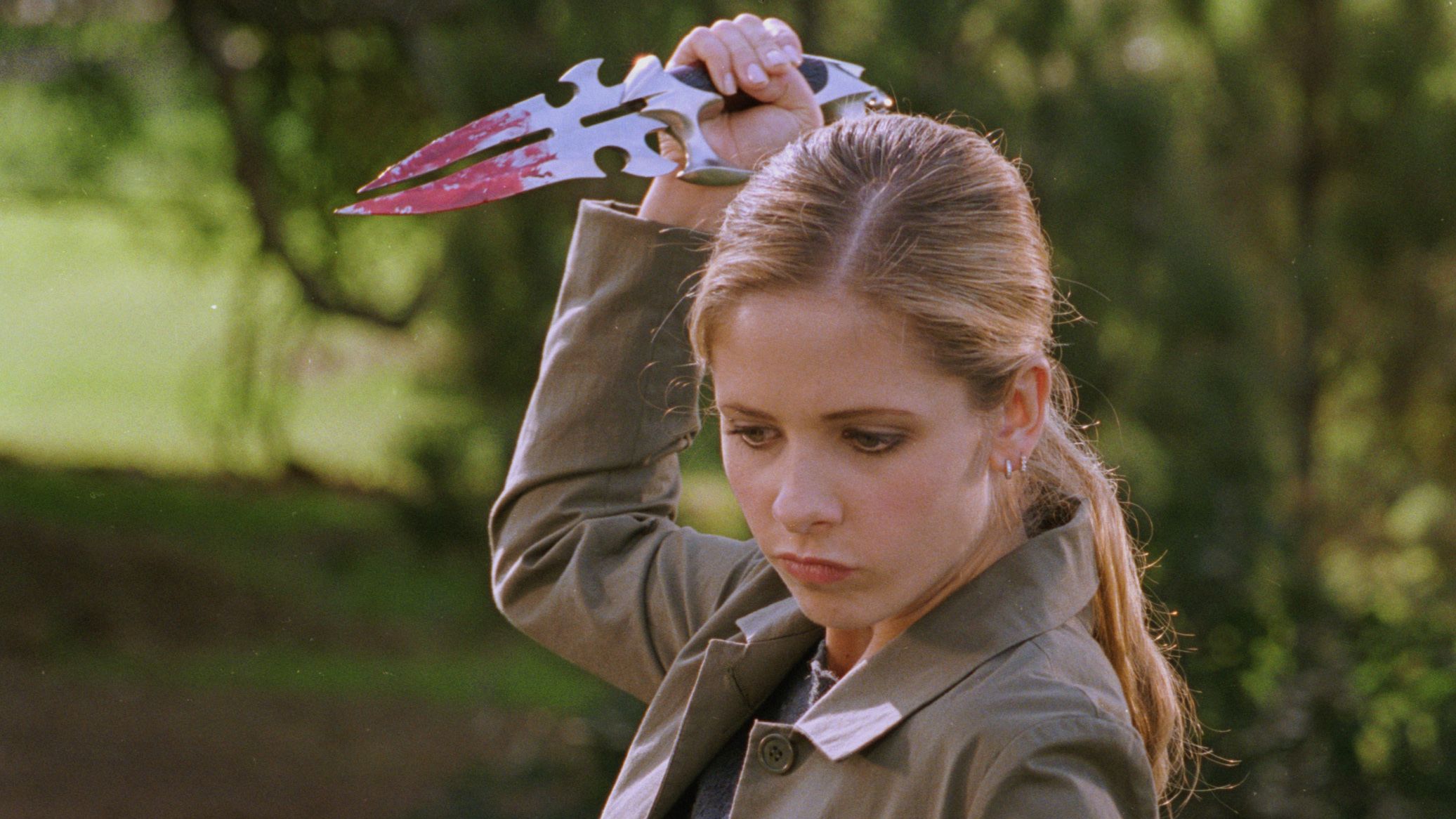
Science fiction TV has always been a challenging genre to create, particularly during the rapidly changing 1990s. It demands creativity, technical skill, and compelling storytelling to connect with viewers. While today’s shows often use sophisticated computer-generated imagery and benefit from large streaming budgets, earlier sci-fi programs depended on clever practical effects and imaginative set designs to make their futuristic ideas believable.
Making science fiction for television was always difficult, but incredibly rewarding when it worked well. The 1990s were a key moment for the genre, as improvements in CGI, animatronics, and digital filmmaking techniques allowed creators to bring ambitious ideas to life that hadn’t been possible before.
The 1990s brought a wave of science fiction shows that were more visually impressive and complex than ever before, raising the bar for the entire genre. However, sci-fi television has always faced high expectations. Fans consistently want believable worlds, well-developed characters, and stories that are ambitious and explore new ideas.
It was tough for shows to succeed because networks had limited money and strict deadlines, meaning only the best ones lasted, particularly during a very competitive time. Luckily, the 1990s gave us some incredibly memorable and important sci-fi series. These shows didn’t just define the sci-fi genre; they profoundly influenced fantasy storytelling as a whole.
1990s science fiction shows were pioneers, often telling ongoing stories before it became common on television. Many also cleverly used futuristic ideas to examine important social and political issues, and even big philosophical questions. The influence of these shows is still felt in today’s TV landscape, and they were key in shaping the future of the sci-fi genre.
10. Sliders
Fox
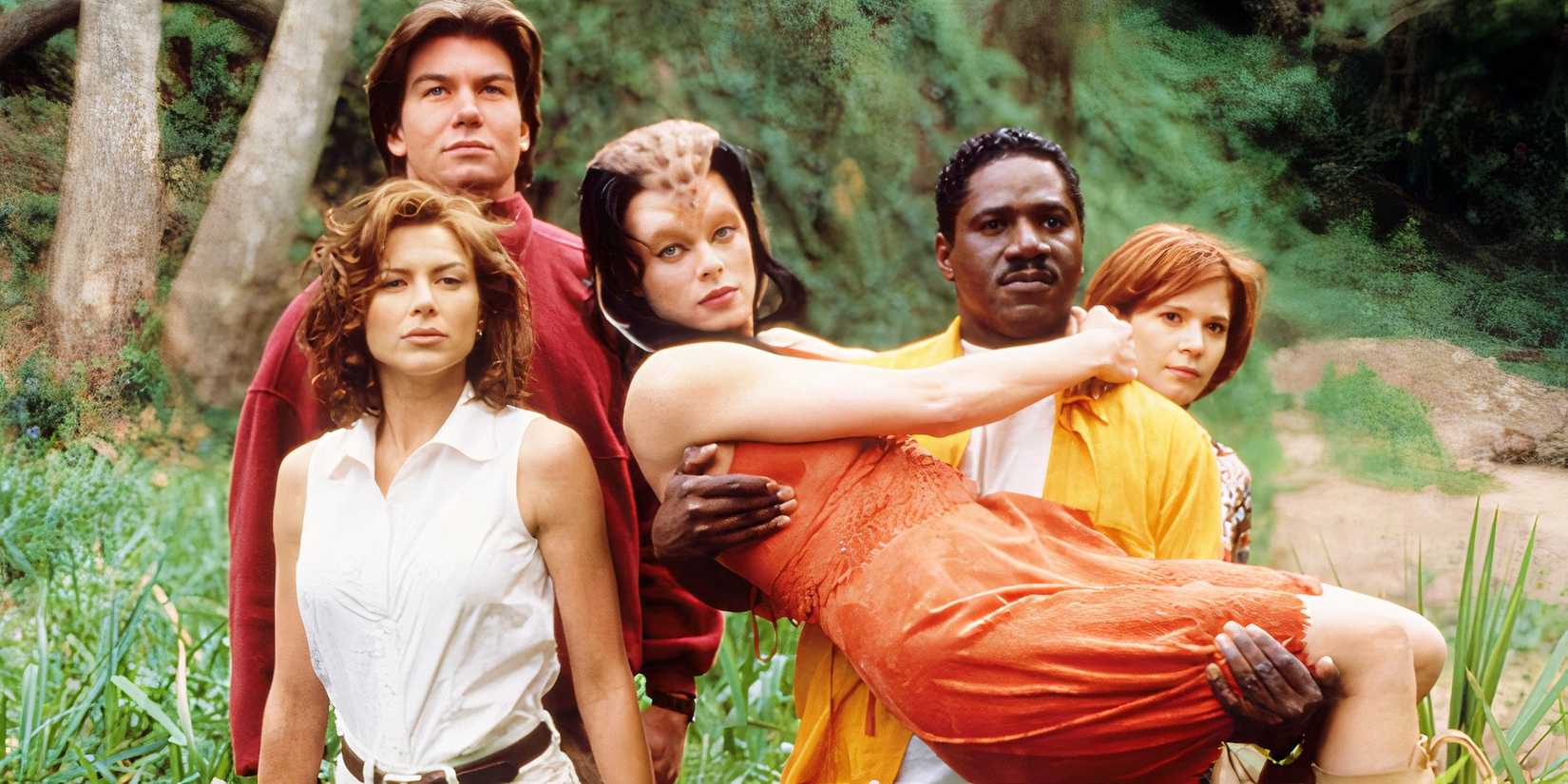
The show Sliders, which ran for five seasons, followed Quinn Mallory (Jerry O’Connell) and his friends as they traveled between different versions of Earth. Each Earth had its own unique history and culture. Premiering in 1995, the show was popular with science fiction fans and explored fascinating alternate realities – worlds where, for example, Britain won the American Revolution or technology developed along entirely different paths.
Despite some production challenges, Sliders was a boldly imaginative show. Its unique format, presenting a new story each week, kept viewers guessing and consistently delivered unexpected twists.
9. The Outer Limits
Showtime/Syfy
The Outer Limits, which ran for seven seasons, was a reboot of the classic 1960s show of the same name. This 90s version was known for its darker and more thoughtful approach to science fiction, with each episode telling a complete, standalone story. It delved into more philosophical themes than many other sci-fi shows at the time.
As a sci-fi fan, I always loved how The Outer Limits wasn’t afraid to tackle big ideas – things like artificial intelligence, messing with genetics, first contact with aliens, and what’s right and wrong in science. What really made it special, though, was that it wasn’t one continuous story. Being an anthology allowed it to explore all sorts of different concepts each week. It really became a late-night staple on cable, and honestly, to me it felt like the 90s version of The Twilight Zone.
8. Farscape
Syfy
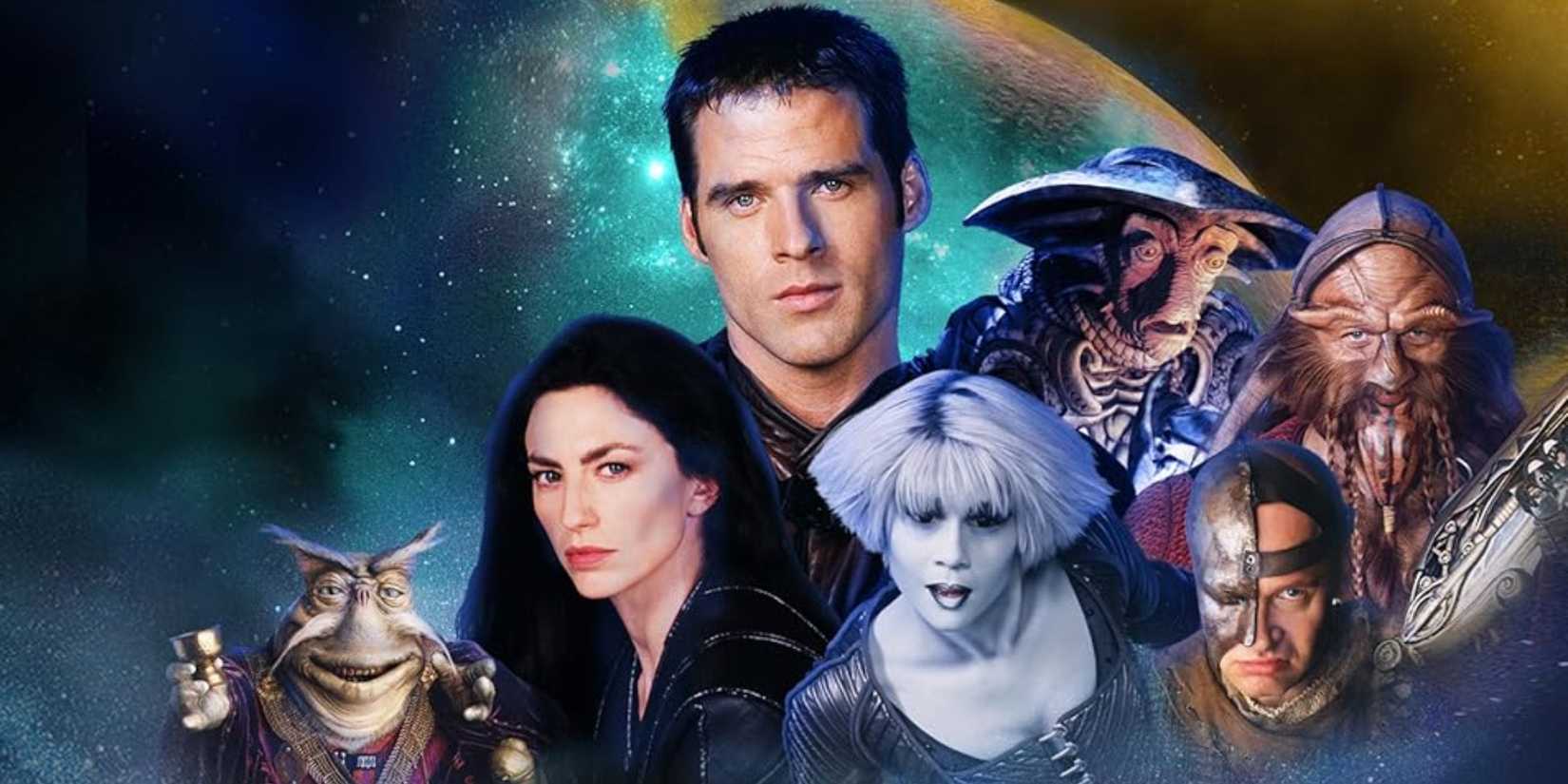
Created with The Jim Henson Company, Farscape was a truly innovative science fiction series. It centered on astronaut John Crichton, played by Ben Browder, and his adventures across the galaxy. After unexpectedly traveling through a wormhole, Crichton found himself on a ship with a crew of alien prisoners and had to adapt to a completely different way of life.
Farscape stood out for its unique look and feel, combining funny moments with genuinely moving stories and an ongoing plot. It was especially celebrated for its innovative puppets and makeup, all of which helped create a richly imagined and influential science fiction universe.
7. Stargate SG-1
Showtime/Syfy
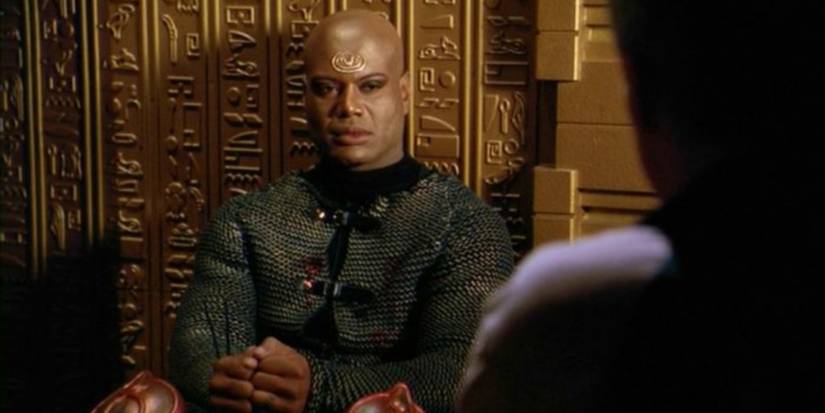
Inspired by the 1994 movie Stargate, Stargate SG-1 was a popular science fiction series that ran for many years, becoming one of the longest-running of its kind. The show centered on a military team who used an ancient alien portal to travel to different planets. During their adventures, they discovered new cultures and faced significant dangers.
Throughout its ten seasons, SG-1 successfully combined exciting action with a detailed mythology, allowing viewers to connect with the characters’ journeys. The show proved popular enough to launch several spin-offs, and the original 1990s series remains well-regarded today.
6. Quantum Leap
NBC
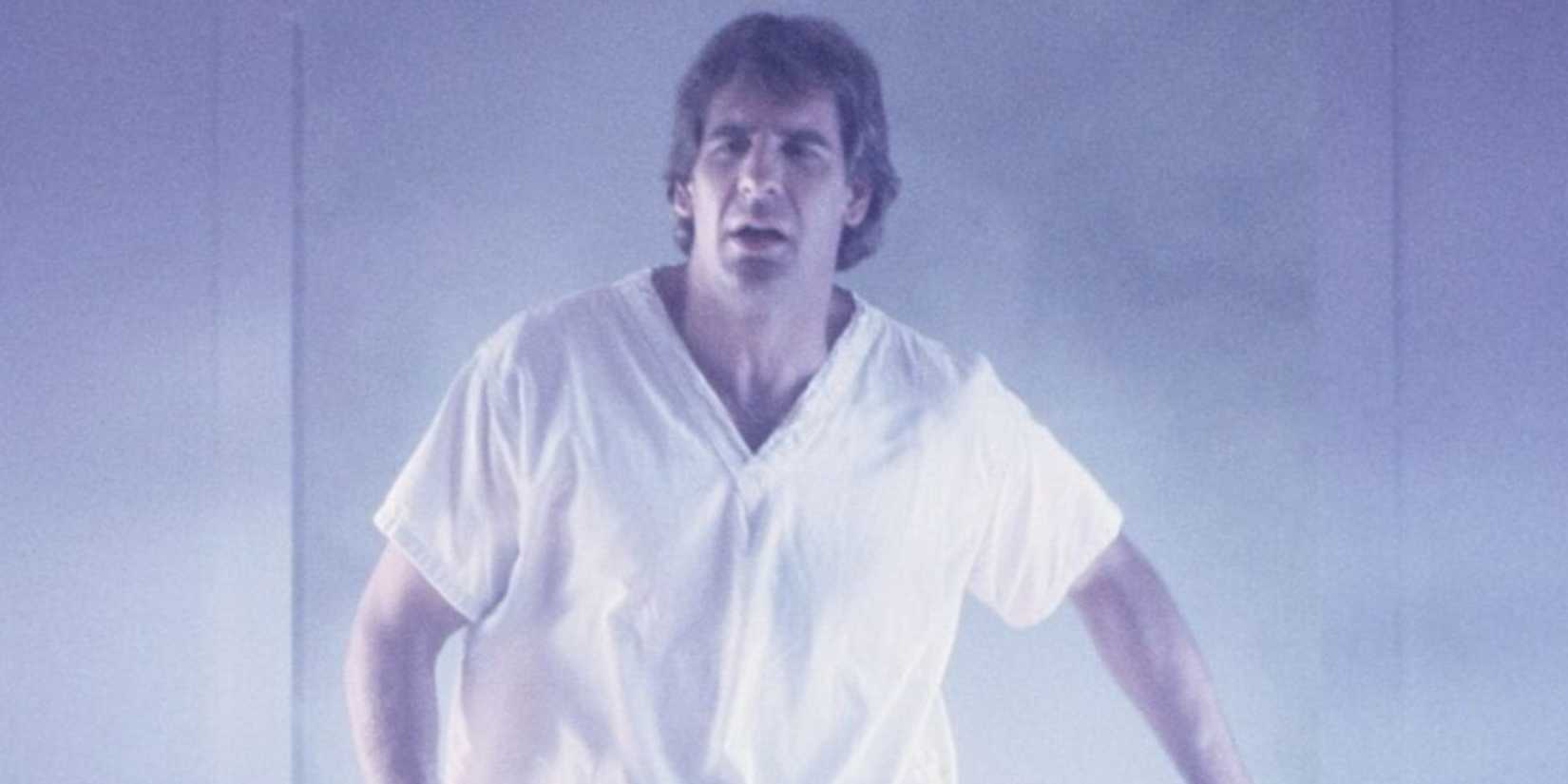
The original Quantum Leap captured the spirit of late 1980s and early 1990s science fiction. Its touching story – about Dr. Sam Beckett (Scott Bakula) becoming stuck in time and traveling through the past to fix problems – introduced many viewers to sci-fi in an accessible and heartwarming way.
Despite being a science fiction show, Quantum Leap connected with viewers on a deep emotional level. It appealed to sci-fi fans and those who weren’t typically interested in the genre by using the premise to thoughtfully examine social problems, personal development, and difficult ethical questions. Ultimately, Quantum Leap was a remarkable series.
5. Star Trek: Voyager
UPN
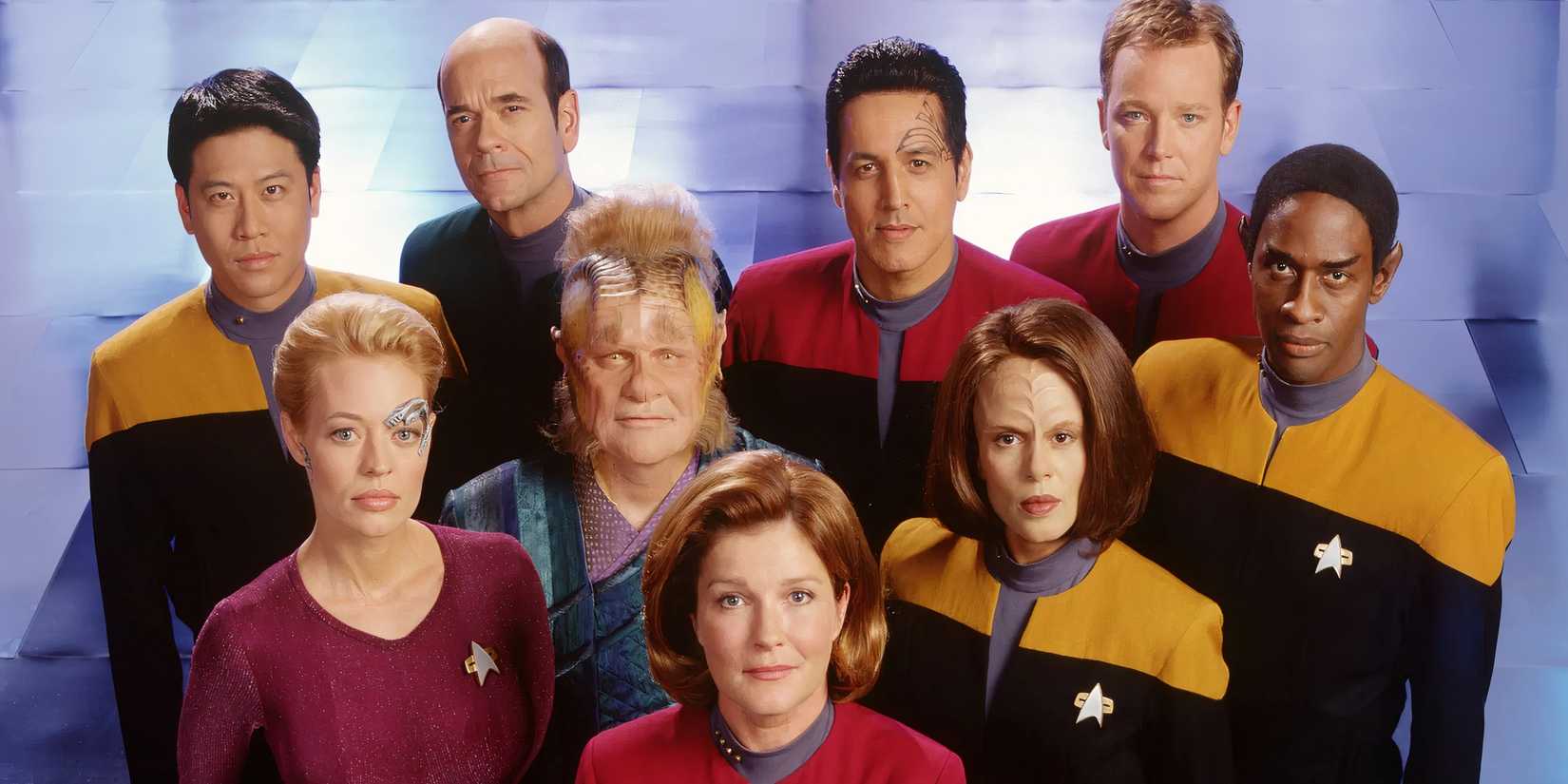
Similar to other Star Trek series, Star Trek: Voyager was a big hit and an important part of the franchise. It ran for seven seasons on UPN and told the story of Captain Kathryn Janeway (played by Kate Mulgrew) and her crew after they found themselves stranded 70,000 light-years from Earth. The show took the familiar Star Trek formula and added a focus on survival.
Even for a show made in the 1990s, Star Trek: Voyager is remarkable. It’s known for its memorable characters, innovative technology, and how well it developed relationships between those characters – all while keeping the story exciting and the pressure consistently high, despite being set in a limited space.
4. Babylon 5
TNT
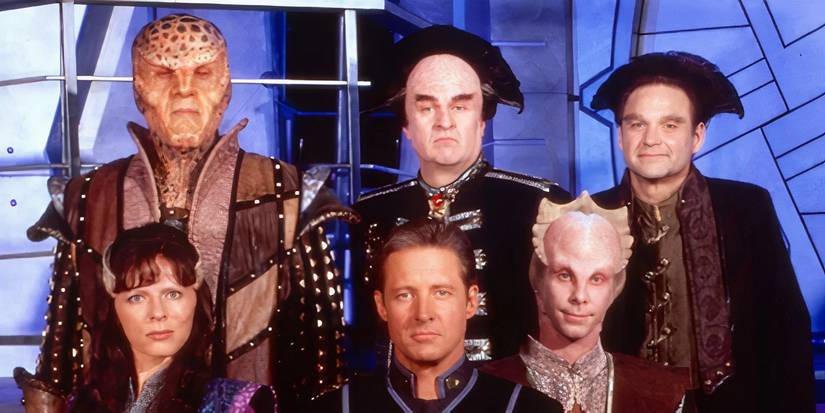
Babylon 5 was a pioneering science fiction series known for its complex, ongoing storylines – something rarely seen on TV at the time. The show took place on a space station that served as a hub for diplomacy, and it delved into the political conflicts, secret plots, and various power struggles happening across the galaxy. Its unique approach truly distinguished it from other sci-fi programs.
The series was a major accomplishment for its genre, thanks to its carefully crafted story that unfolded over five years. Like Babylon 5, it featured compelling narratives and was among the first to heavily utilize CGI, influencing many shows that followed.
3. Buffy The Vampire Slayer
The WB
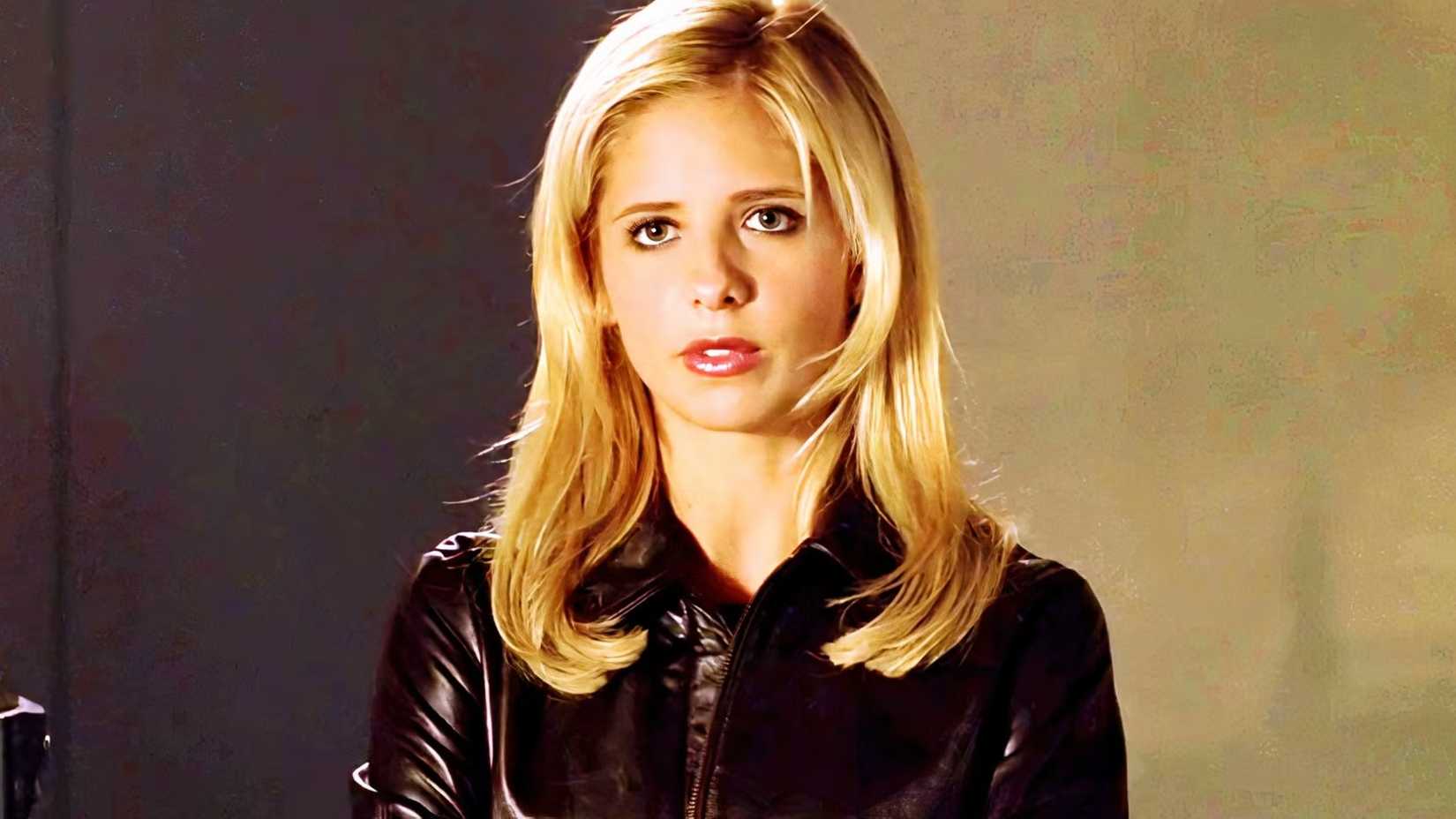
Buffy the Vampire Slayer was a truly original show, successfully combining the excitement of teen dramas with science fiction. While other shows of the time aimed for broad appeal, Buffy specifically targeted teens and young adults with its unique format – each episode featured a new monster and thrilling adventure, all set against the backdrop of high school life. It quickly became a popular and essential watch for that audience.
Buffy Summers, played by Sarah Michelle Gellar, spent the series battling monsters, demons, and forces that threatened to destroy the world – all while navigating the challenges of high school. What really drew viewers in was how realistically the show explored the difficulties of growing up and becoming an adult.
2. Star Trek: Deep Space Nine
CBS

During the 1990s, Star Trek: Deep Space Nine was a standout show in the Star Trek franchise. It premiered in 1993 and quickly became known for its more serious and intricate stories. Unlike other Star Trek series, it featured continuing storylines that explored themes like war, faith, and different cultures.
Star Trek: Deep Space Nine is remembered for its long story arc focusing on the Dominion War, but it really stood out because of its complex characters and thrilling, high-pressure plots. The show became incredibly influential and left a lasting impact on science fiction.
1. The X-Files
Fox
 Greg Lavy / TV Guide / TM and Copyright © Fox Network. All rights reserved. / Courtesy Everett Collection
Greg Lavy / TV Guide / TM and Copyright © Fox Network. All rights reserved. / Courtesy Everett Collection
Often considered the most important science fiction series of the 1990s, The X-Files really popularized the genre. The show followed FBI agents Fox Mulder (David Duchovny) and Dana Scully (Gillian Anderson) as they investigated a mix of standalone cases and a larger, ongoing story. It became famous for its complex mythology, which included aliens, conspiracies, and hidden government secrets.
Even decades after it first aired, The X-Files remains culturally significant, as evidenced by its revival in the 2010s. The show became a worldwide hit in the 1990s, captivating viewers with its compelling acting, immersive atmosphere, and skillful combination of mystery and suspense.
Read More
- Sony Removes Resident Evil Copy Ebola Village Trailer from YouTube
- Best Controller Settings for ARC Raiders
- Ashes of Creation Rogue Guide for Beginners
- Can You Visit Casino Sites While Using a VPN?
- AKIBA LOST launches September 17
- New Look at Sam Raimi’s Return to Horror After 17 Years Drops Ahead of Release: Watch The Trailer
- One Piece Just Confirmed Elbaph’s Next King, And He Will Be Even Better Than Harald
- Michael B. Jordan Almost Changed His Name Due to NBA’s Michael Jordan
- The Night Manager season 2 episode 3 first-look clip sees steamy tension between Jonathan Pine and a new love interest
- Lies of P 2 Team is “Fully Focused” on Development, But NEOWIZ Isn’t Sharing Specifics
2025-11-26 00:23